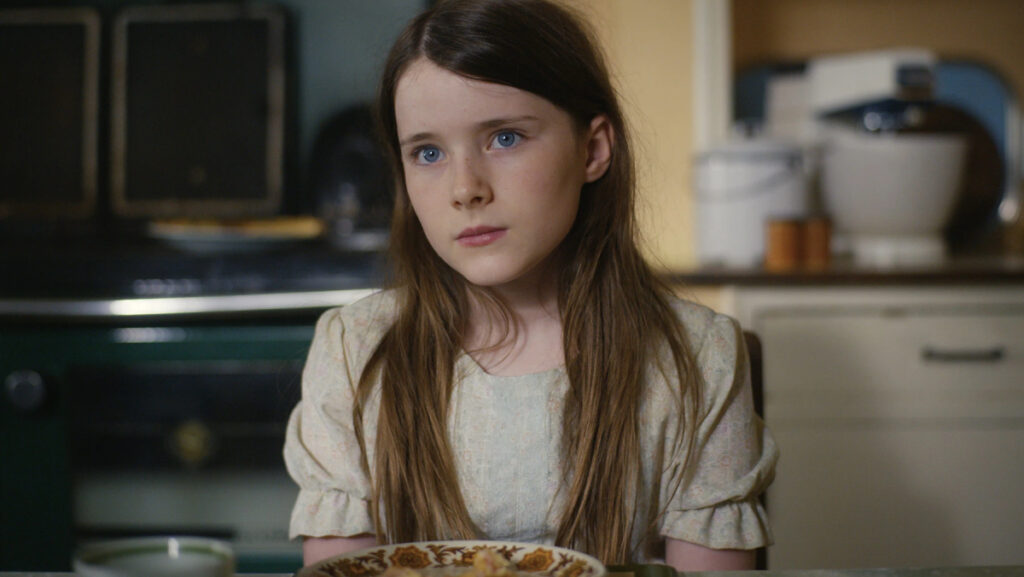The year is 1981 and in a rural town in Ireland lives a 9-year-old girl who is quietly cast aside by her family. It’s the kind of mistreatment that can lead any kid to lose sight of their dreams and who they really are. The kind of mistreatment that can go so easily overlooked in the everyday noise of life.
That all changes when Cáit (Catherine Clinch) is sent off by her family for a summer to live with Eibhlín (Carrie Crowley) and Seán (Andrew Bennett), a couple who live on a farm. Through their time together, they show her real kindness, providing the kind of loving and nurturing home that any child deserves to grow up in. It’s a home that claims to hold no secrets, as Eibhlín tells Cáit. But Cáit soon discovers that there may be more to it than that.
“The Quiet Girl,” nominated for Best International Film at the 2023 Oscars, wasn’t the only Irish film to be nominated for something, with both “The Banshees of Inisherin” and “An Irish Goodbye” being represented. While they all depict very different stories, there’s a common thread here: loneliness and how that manifests in Irish culture. This is a theme that “The Quiet Girl,” a remarkably tender and moving film, empathetically portrays through the eyes of a young girl trying to figure out what home and family really mean.
Many coming-of-age films depicting childhood adolescence, especially with characters of such a young age, often turn to magic or supernatural forces to show a child’s imagination in the face of suppression by the strict, uncaring adult figures in their lives. Just look at people’s obsession with “Matilda” and “Harry Potter,” for example. Yet the delicate cinematography and well-constructed storytelling in “The Quiet Girl” makes the reality of entering a new place feel endlessly imaginative from the eyes of a child. The real magic of this film is found in the everyday acts of kind people, even as they may be internally struggling with loss and hardship.
Clinch does a terrific job playing Cáit, especially considering that she doesn’t have a lot of dialogue to deliver. This leaves much of how we learn about the isolation Cáit feels from her family, and the eventual comfort she finds in a new place, to be conveyed solely through her expressions and body language. Clinch is a skilled enough actor to be able to bring Cáit to life without having to say much at all.
Perhaps the most impressive and layered performance, though, is Crowley’s turn as Eibhlín. She is kind and genuine in caring for Cáit, but there’s also an underlying sadness to her, making it clear that she needs Cáit in her life just as much as Cáit needs her and Seán.
The otherwise predictable (at times to a fault) narrative ends up getting more complicated once more backstory surrounding Eibhlín and Seán is revealed. Even then, the script seems to wrap up certain plot points a little too neatly and leaves moments in the second act dragging on to the point of repetition. It’s also pretty clear where the story is going to end up right from the first time Cáit meets Eibhlín and Seán. But that certainly doesn’t mean that it’s not emotionally effective anyways.
The final moments of “The Quiet Girl” are poignant, endearing and provide the best example in the film of how straightforward storytelling can sometimes be the most successful. It’s what the entire narrative has been building toward, and it takes a true cynic not to get wrapped up in it. Because a simple embrace between people who came into each other’s lives for a reason can mean the world.




















